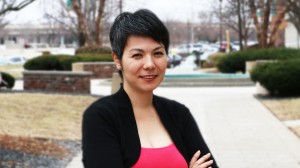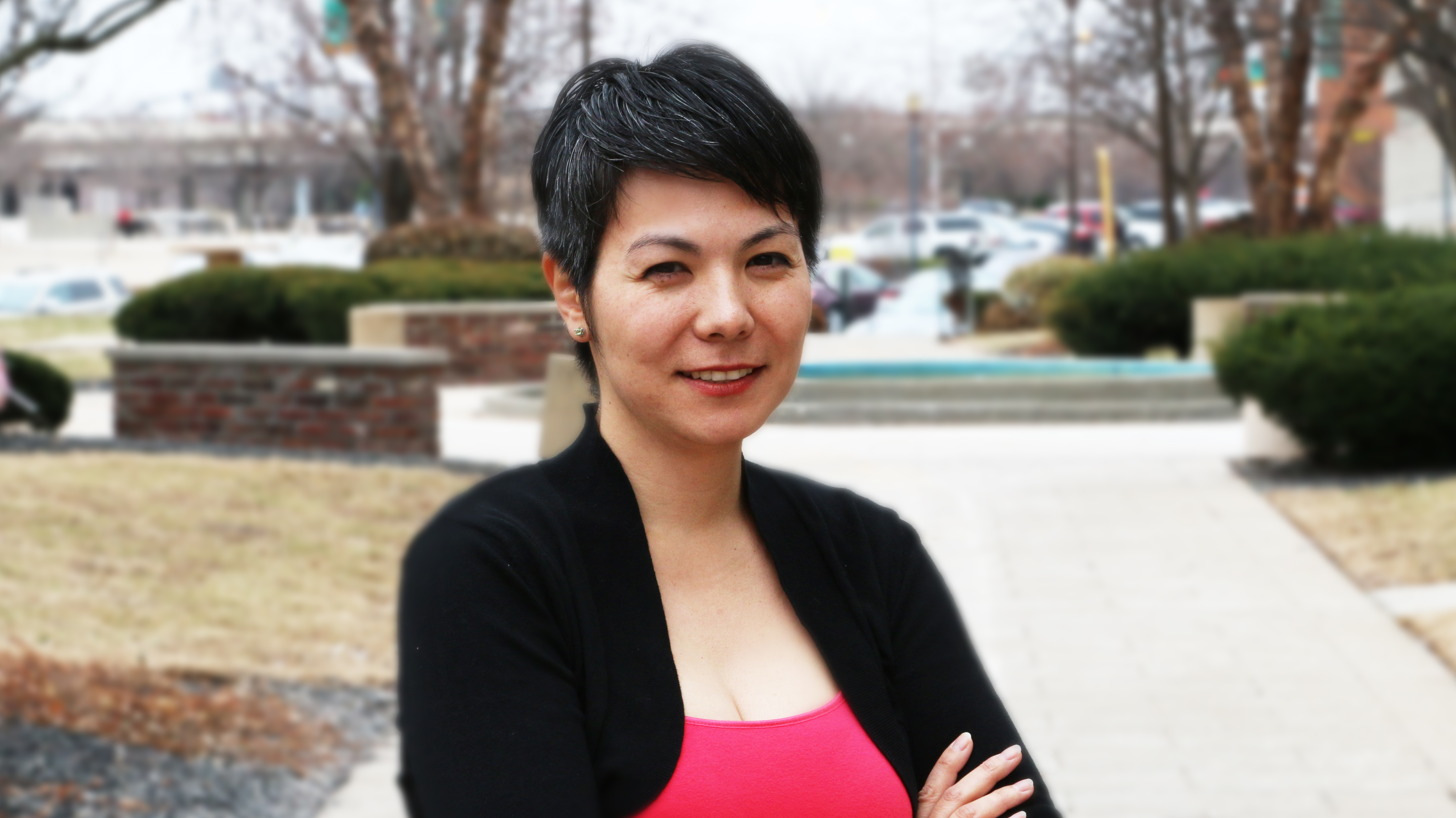A Funny Thing Happened – Laura M. Cheifetz
 Marriage equality was not that important to me.
Marriage equality was not that important to me.
The history of marriage and its current state among straight people renders it a questionable patriarchal institution, mostly tied to property and the potential for abuse. Straight people have done plenty to make marriage just another frequently violated contract that takes advantage of the power differential between men and women. Why anyone would really want into that mess was beyond me.
I think it’s generally good when people have rights, or what we call equal protections in the U.S. The legal rights to pension and death benefits, access to medical information and decision-making, that all seems fine to me. But these are what I would call “middle class problems.” Marriage is a civil issue, and I have long thought the church has no business in acting as an agent of the state. The state should provide equal protections, while the church should be free to have theological conversations about what marriage means.
It also didn’t matter because I have it relatively easy, as a person in a same-sex relationship. Due to the homophobia of the church during my early years in ministry, I learned the skills that help me spend a week with church people without mentioning my spouse. I look very conventional. I’m a cisgendered, monogamous, educated, middle class professional with U.S. citizenship. I’m a woman, and I look and feel like it. When I’m alone, no stranger walking down the street would hurl homophobic slurs my way, because I’m not the stereotype. I face more danger as a woman who frequently travels alone, and as a woman of color in a country that remains more white supremacist than we’d care to admit, than I do as a queer person.
I’m more interested and invested in work beyond marriage equality, in how the church has rendered invisible other oppressions. What kills more people in the U.S. is income inequality and its intersections with racism. What amps up homophobia is the intersection of homophobia with racism and poverty. What ends more lives in the U.S. every day is sexism and violence against women. What does more harm to people day-to-day is the state of the criminal justice system, which, when combined with racism and classism, means we are willing to let (in particular) poor black and brown people languish in prisons for years, and make it impossible for those with felony convictions to find meaningful work upon their release. What kills people crossing our borders is a broken immigration system, coupled with racism, classism, and xenophobia, creating a horribly dehumanizing mix of indifference to the lives of brown people. What kills people is the odd combination of sexism and homophobia that leads to unacceptably high levels of violence and discrimination against people who are transgender.
But a funny thing happened at my marriage ceremony last year.
My partner and I have been a couple for nine years, had a ceremony seven years ago in which we refused to say anything resembling “until death do us part” because that is just unrealistic, and were legally married a year ago. The first ceremony was for God, love, and family. The second was for the legal protections. I mean, we want to be together (most days, anyway), but when facing an “either get married or have no access to same-sex partner benefits and have tons of extra legal paperwork which may or may not protect us” situation, marriage seemed the most economical option. Marriage is a legal shortcut to basic rights.
I’m not one to sit around and wait for anything, so I wasn’t about to wait around for the church to validate my marriage or for DOMA to be overturned. We are practical, goal-oriented, high-functioning people. We take care of business. So we scheduled a marriage.
We occasionally meet up with friends from Michigan and we all crash with a friend in Toronto who works for the United Church of Canada, so we decided Toronto would be the place. It was Pride weekend in Toronto, and hotels were full. We proceeded to not invite anyone else. We made no official dinner or reception plans. We bought no new clothes. We did not reserve a ceremony location, since the (United Church of Canada) minister officiating said we could just walk into a park, or stand in a covered bus stop in case of rain. We thought we would just go through the motions.
Funny thing #1: DOMA was overturned as I sat in a government office in Toronto applying for a marriage license.
Funny thing #2: And we both cried during the marriage ceremony.
We cried because we love each other, and we cried because we were affirming and covenanting that love in full view of church and state. And in view of a whole lot of passers-by, who shamelessly interrupted our short informal ceremony by shouting “Congratulations!” in our general direction. One of our friends brought us matching brides-to-be sashes for us to wear at dinner the night before, and on the bus to the park. She brought white balloons and streamers and bells for the actual ceremony. And she brought those card placards that declare “Just Married!” that we wore all day. Strangers gave us standing ovations, congratulated us, asked if they could take a picture with us, and sent champagne over to our table. A middle-aged American woman at a bar (the bar was named “Church” and was very affirming… isn’t that nice?) stopped us to tell us she was so happy for us, that now we could do this.
I had become so accustomed to keeping this relationship under wraps in certain segments of the church. And I learned that being public meant something not just to us, but to other people. Neither of us missed the irony that our marriage happened in full view of another church and another state, instead of our own.
So when the PC(USA), the church that raised me and shaped me and is host to my vocation, voted to allow ministers to officiate same-sex marriages in states where it is legal, and voted to recommend the language around marriage be changed in the Book of Worship, I had a strange moment of pride in my church.
How funny. The church moving toward marriage equality actually does matter.
I know this isn’t a done deal, and it isn’t an easy move. I know this decision is difficult for many Presbyterians. It hasn’t been easy for me to be Presbyterian, either. But church never promised to be easy.
The Rev. Laura Mariko Cheifetz is executive director of church and public relations for the Presbyterian Publishing Corporation.


Where do I send the gift!!!! 🙂
Funny thing #3: I got a lump in my throat reading this. 🙂